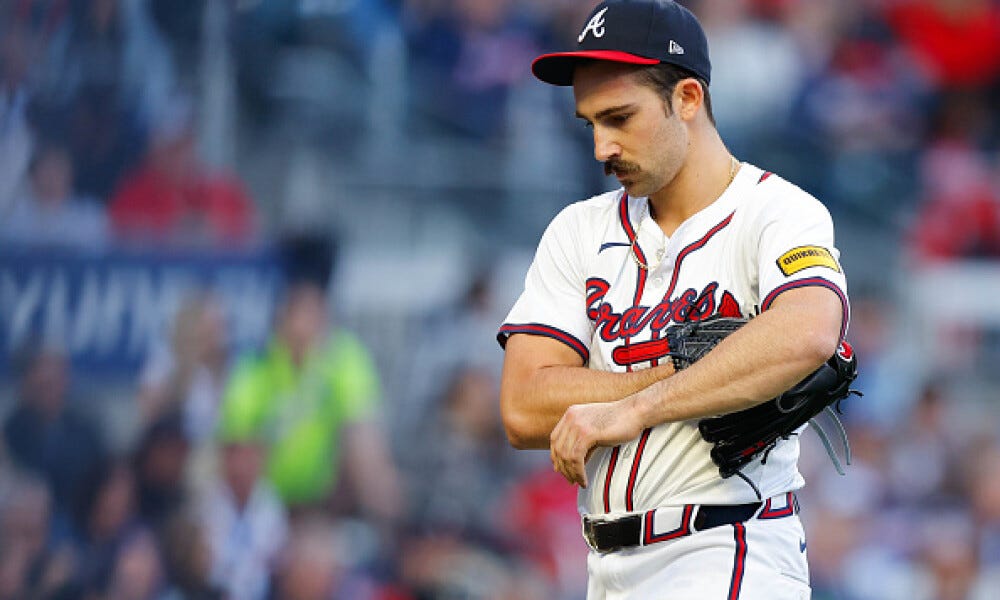The Out in Left Weekly: April 14, 2024
Elbows, non-monopolies, and more
MLB
The pitch timer and elbows can coexist
It was like finding out that a favorite relative had a terrible political opinion: the MLB players union blamed a spate of arm injuries on the pitch timer. The finger pointing started this week after the hard-throwing Atlanta Braves ace Spencer Strider tore hi…




